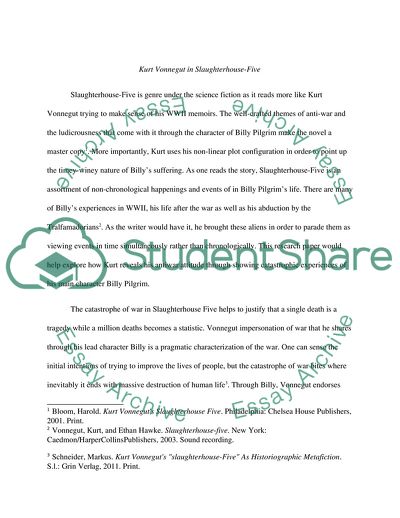Kurt Vonnegut in Slaughterhouse-Five Reveals His Antiwar Attitude by Essay Example | Topics and Well Written Essays - 1500 words. https://studentshare.org/literature/1872439-kurt-vonnegut-in-slaughterhouse-five-reveals-his-antiwar-attitude-by-showing-catastrophes-of-war-through-his-personal-experiences-and-through-fiction-character-billy-pilgrim
Kurt Vonnegut in Slaughterhouse-Five Reveals His Antiwar Attitude by Essay Example | Topics and Well Written Essays - 1500 Words. https://studentshare.org/literature/1872439-kurt-vonnegut-in-slaughterhouse-five-reveals-his-antiwar-attitude-by-showing-catastrophes-of-war-through-his-personal-experiences-and-through-fiction-character-billy-pilgrim.


